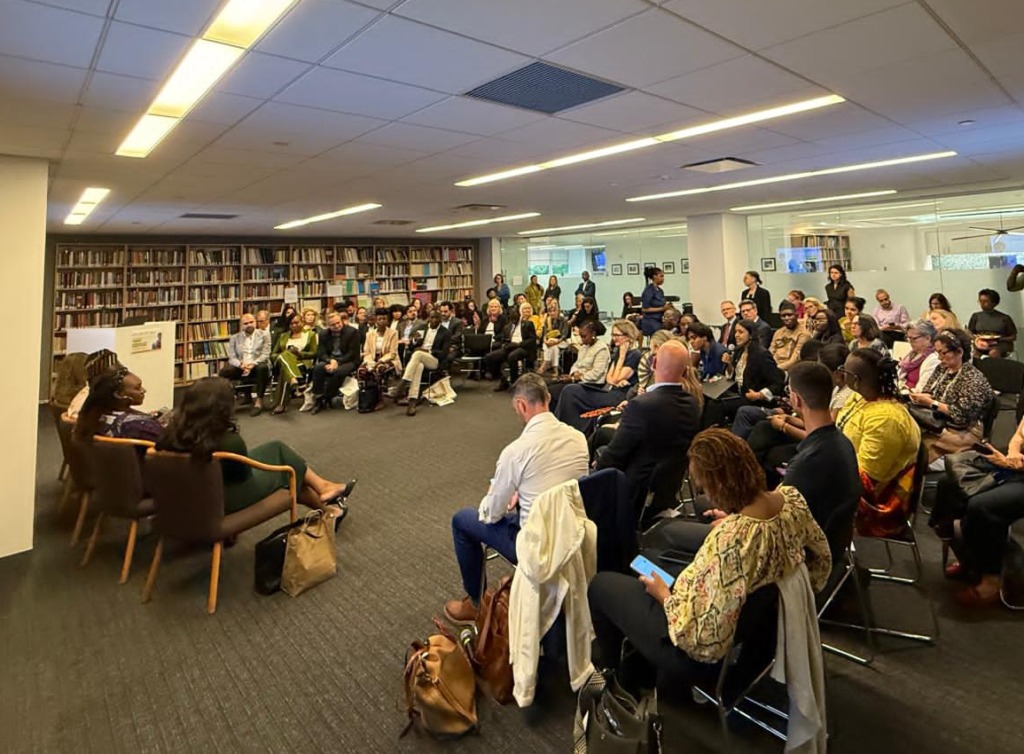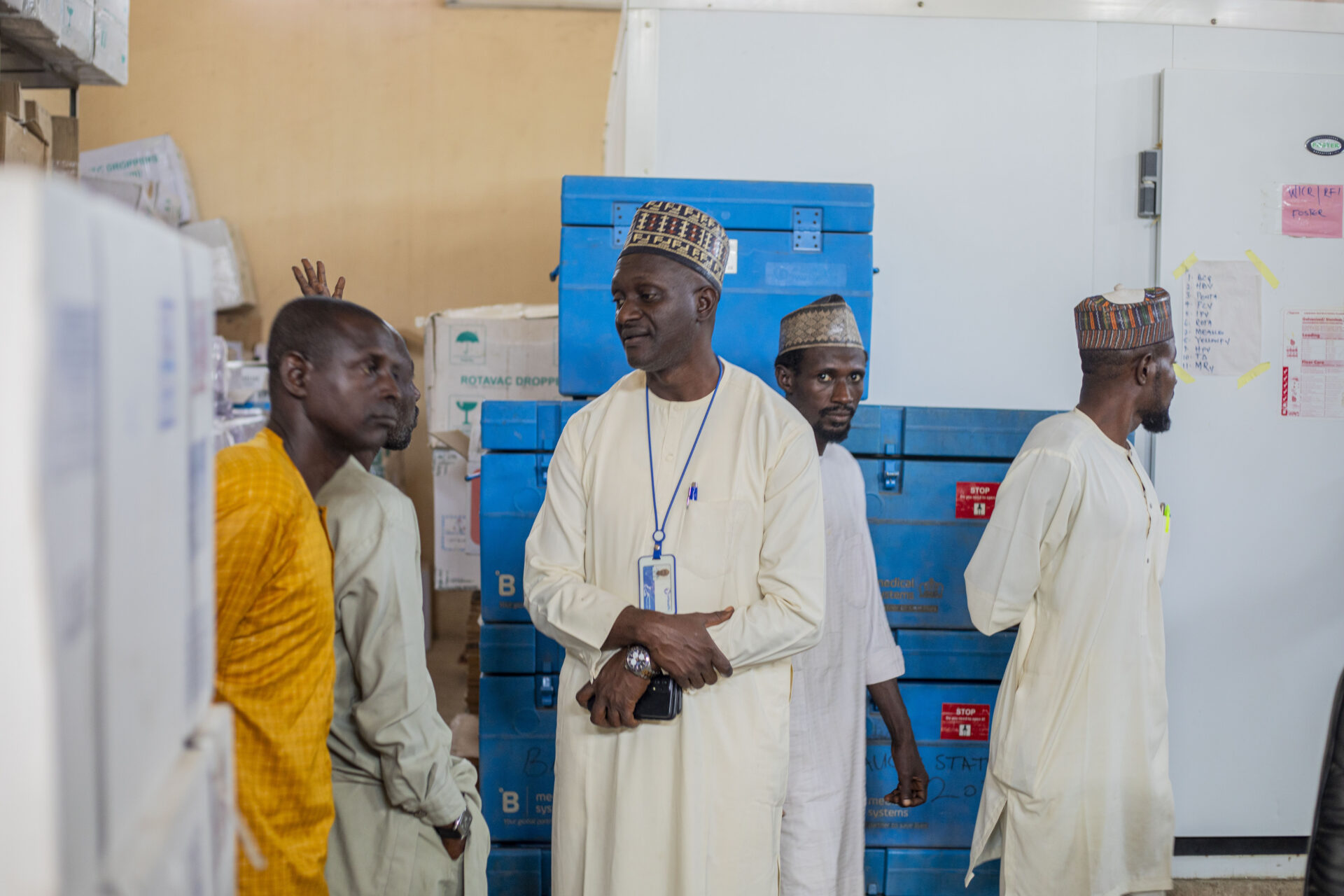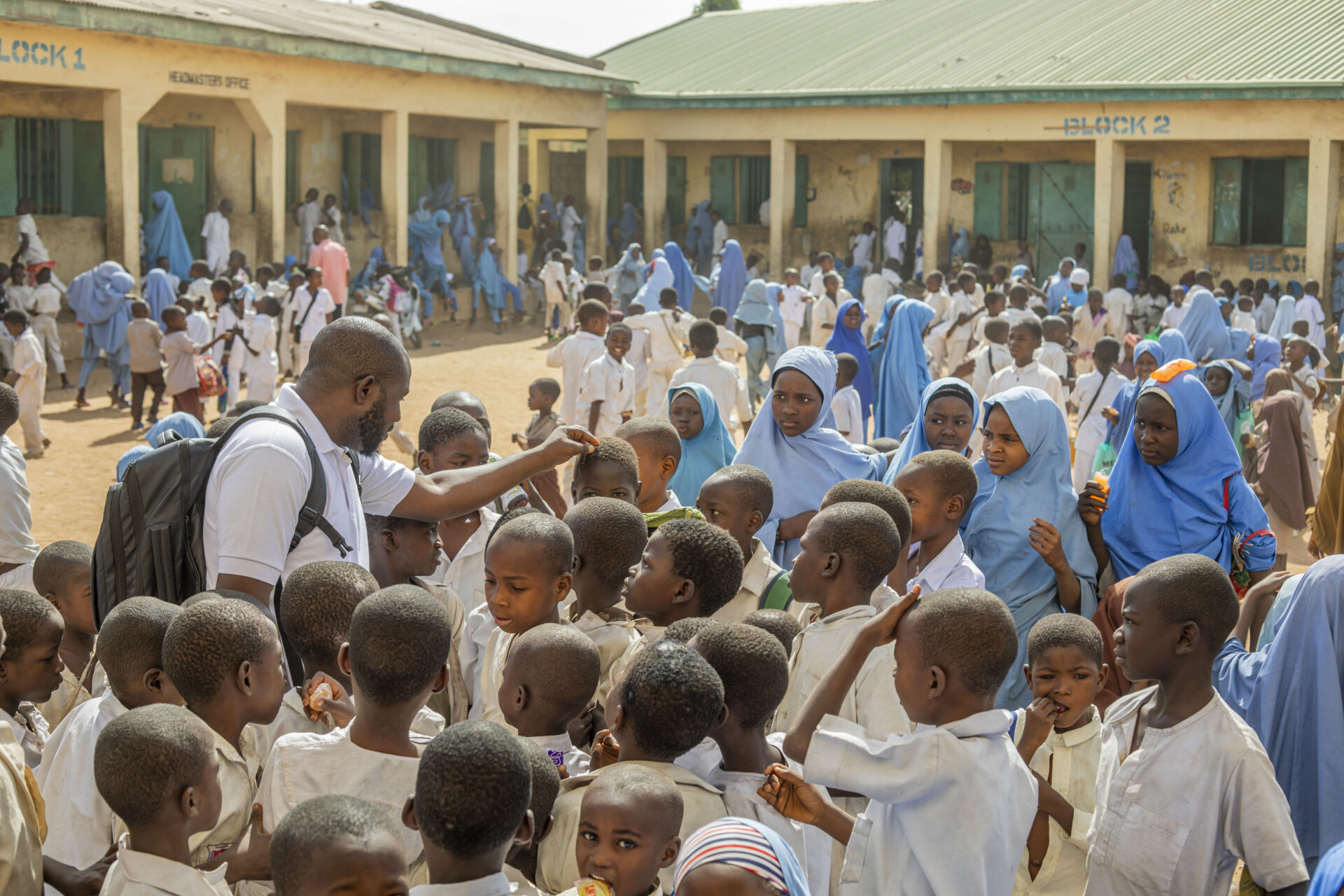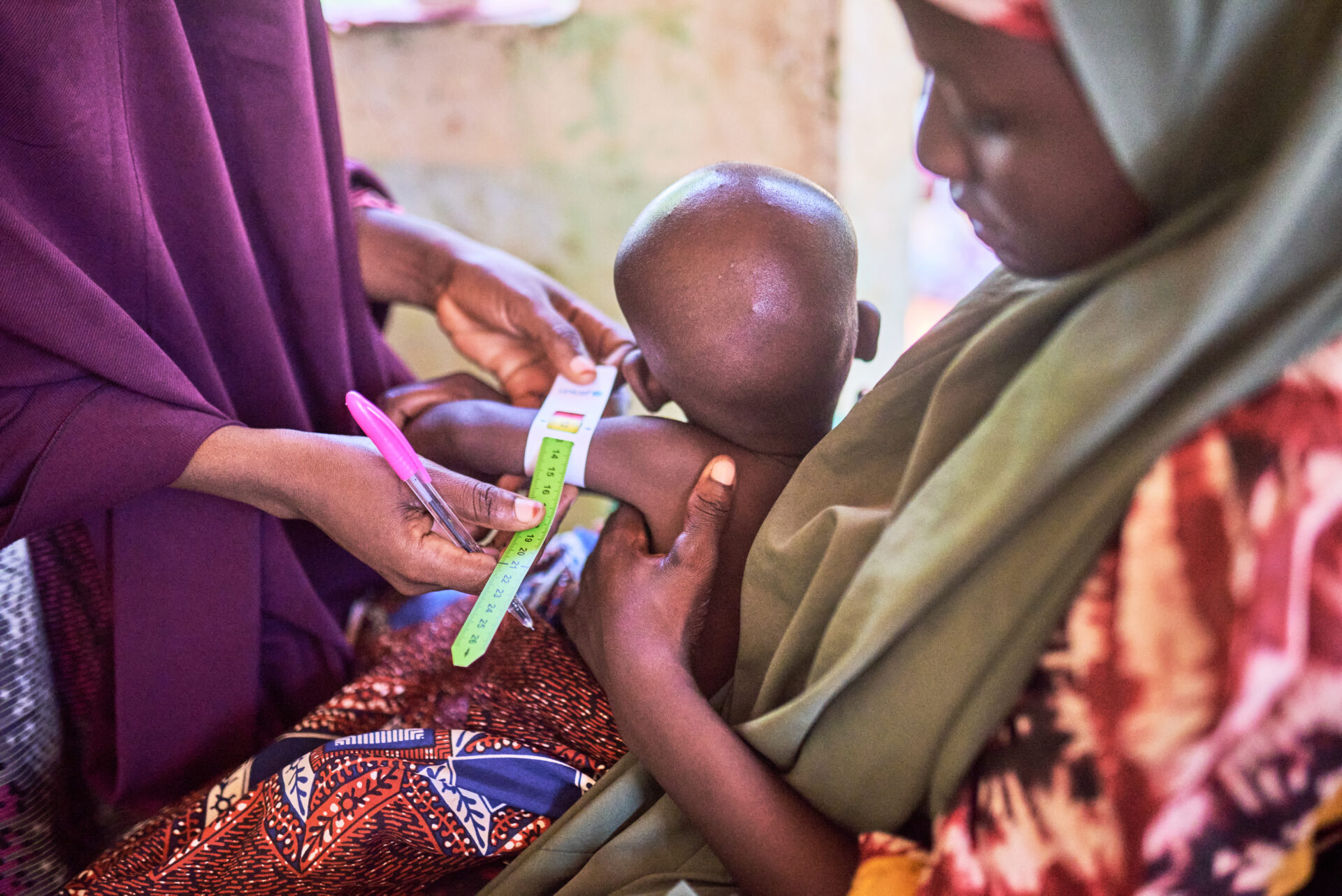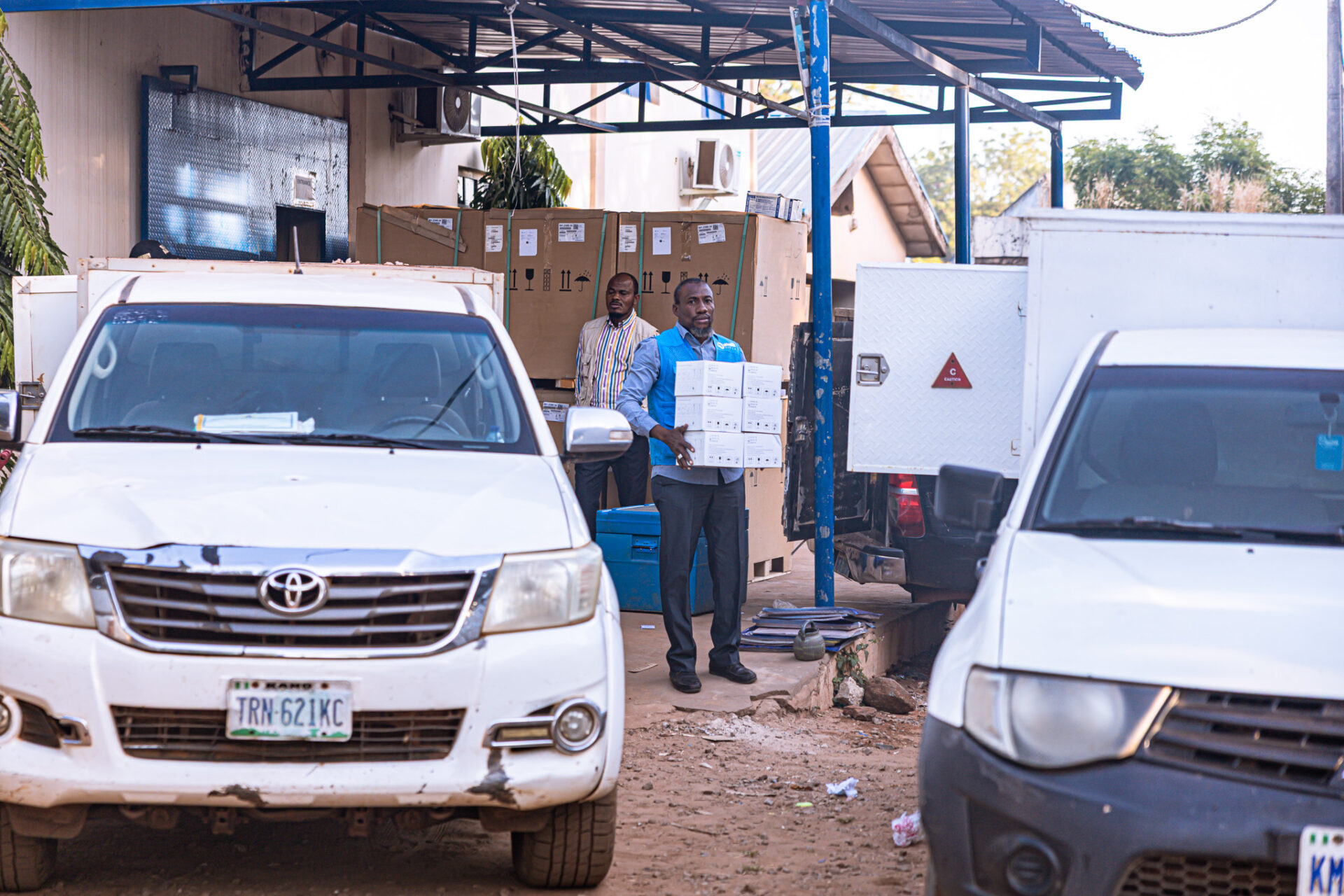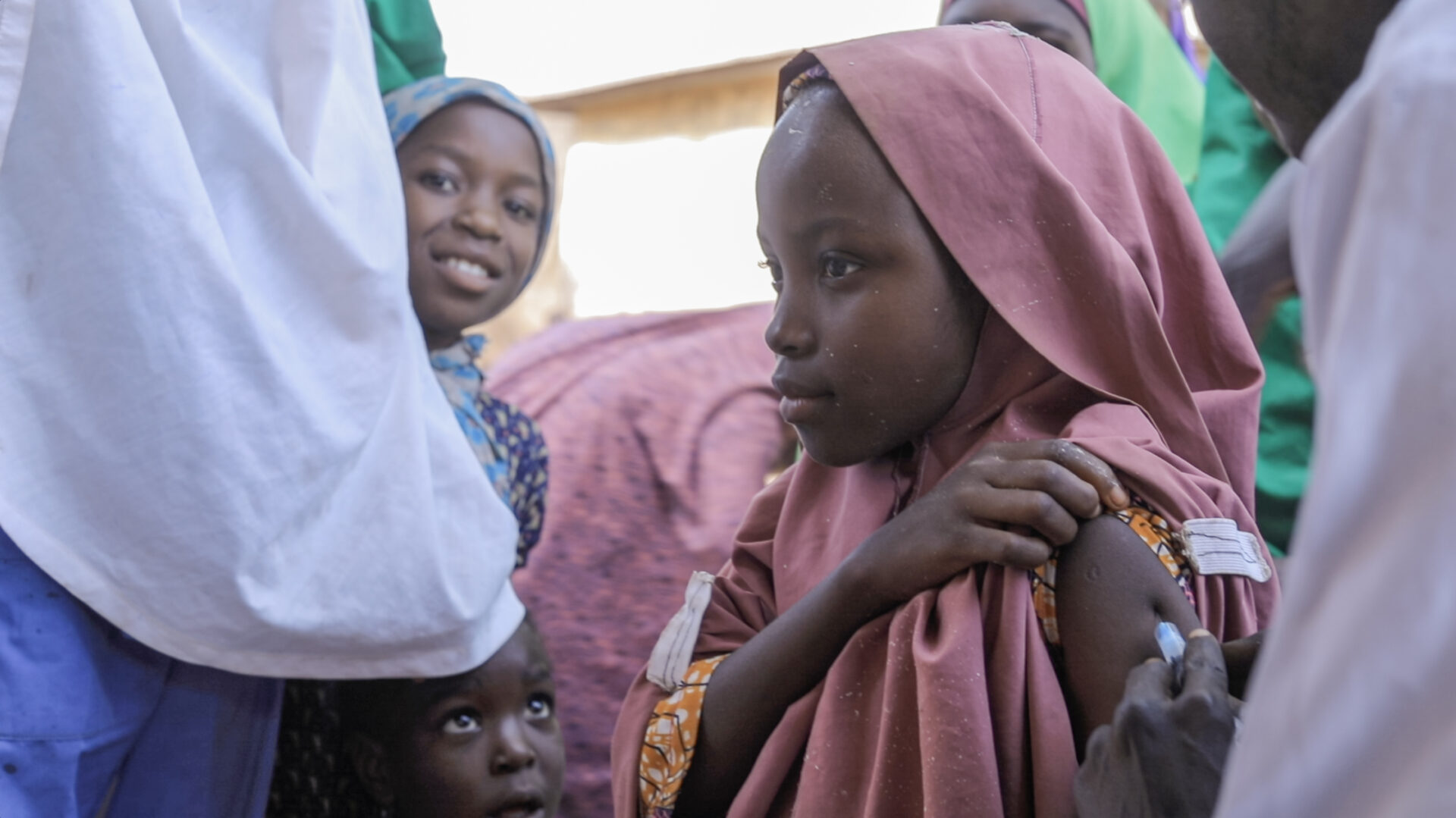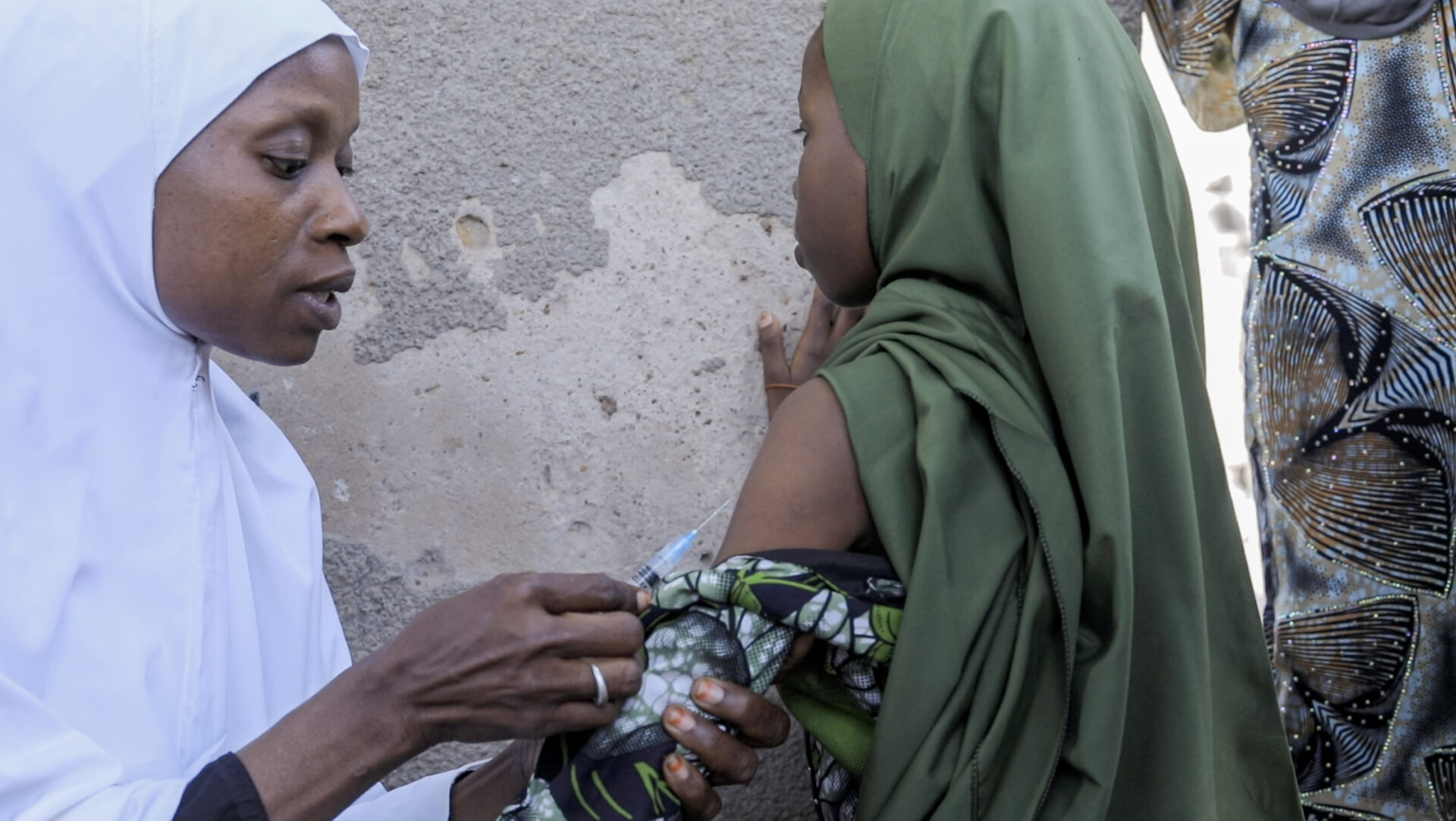October 13, 2025
5 Lessons UNGA80 Taught Us About African-Led Innovation
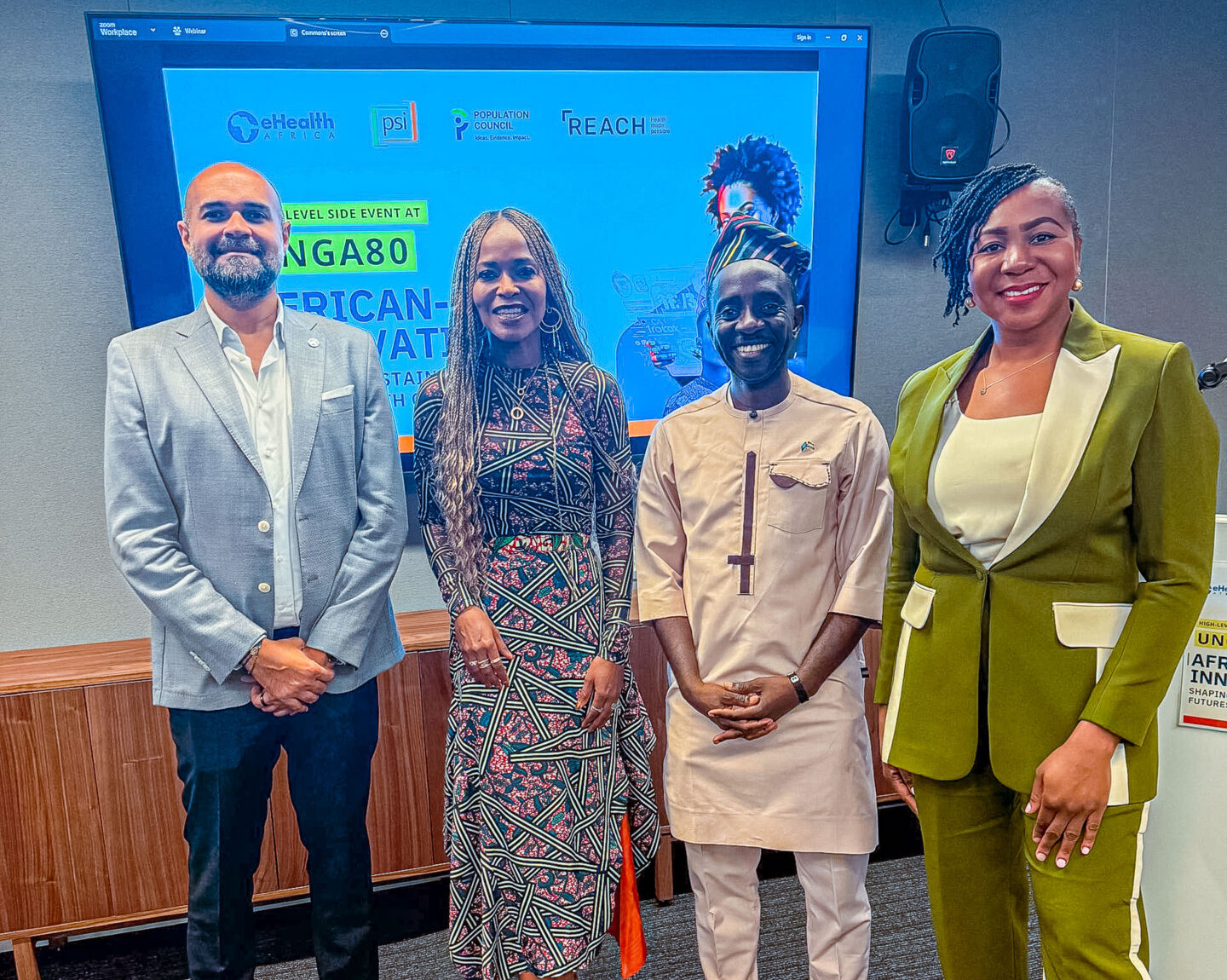
By Azeez-Ayodele Fatimah Ayotemitide
For decades, conversations about Africa’s development have centered on aid. At UNGA80, that narrative shifted. eHealth Africa, alongside Population Services International (PSI), the Population Council, and Reach Digital Health, came together to reframe how the world sees Africa — not as a beneficiary, but as a builder. Their shared conviction was clear: the time for Africa to lead, design, and define its own development trajectory is now.
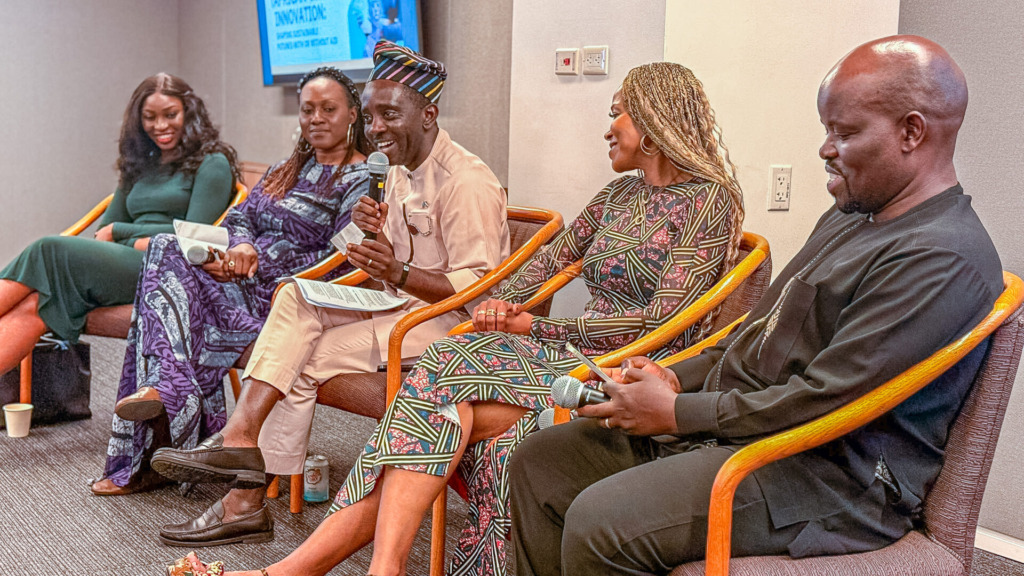
These organizations co-hosted the side event “African-led Innovation: Shaping Sustainable Futures With or Without Aid” at UNGA80 to turn that conviction into dialogue and action. The event brought together ministers, health leaders, researchers, and community innovators – both in New York, across Africa, and online – not to speculate about Africa’s potential, but to spotlight solutions already transforming lives. The call to action was clear: stop talking about Africa’s future. Start listening to how Africans are building it right now.
“Some African governments are beginning to prioritize innovation, especially in health technology. We are seeing increased funding and commitment, which is both encouraging and proof that this works,” shared Atef Fawaz, Executive Director of eHealth Africa, setting a strong context for this bold conversation.
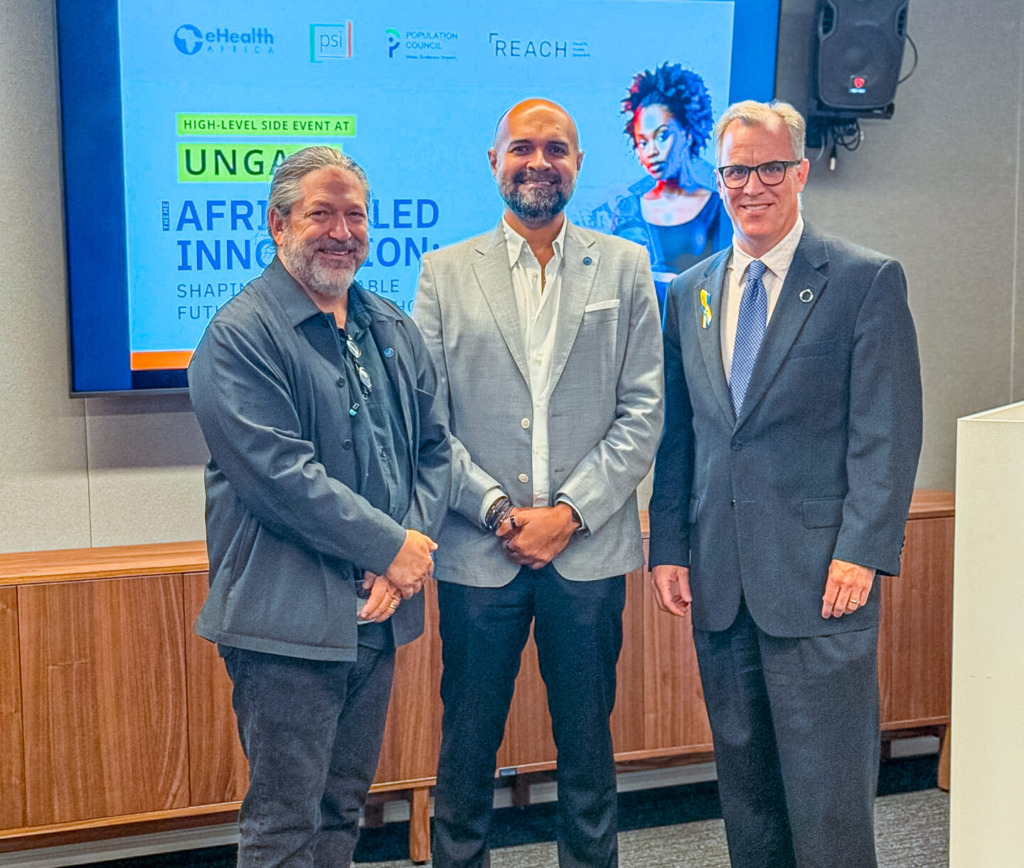
He added, “We believe that Africa will be among the top 10–20 emerging markets in the next two decades. This is the place to be. My message to the younger generation is: look into Africa, invest in Africa — whether in health projects or tech. There is so much potential and talent here, and that’s what we are pushing forward.”
Ota Akigbe, Director of Programs at eHealth Africa, grounded this vision in practice: “Sustainability means creating systems where aid is helpful but not essential, and where communities and governments have the right skills, the right structures, and the right ownership to carry on by themselves.”
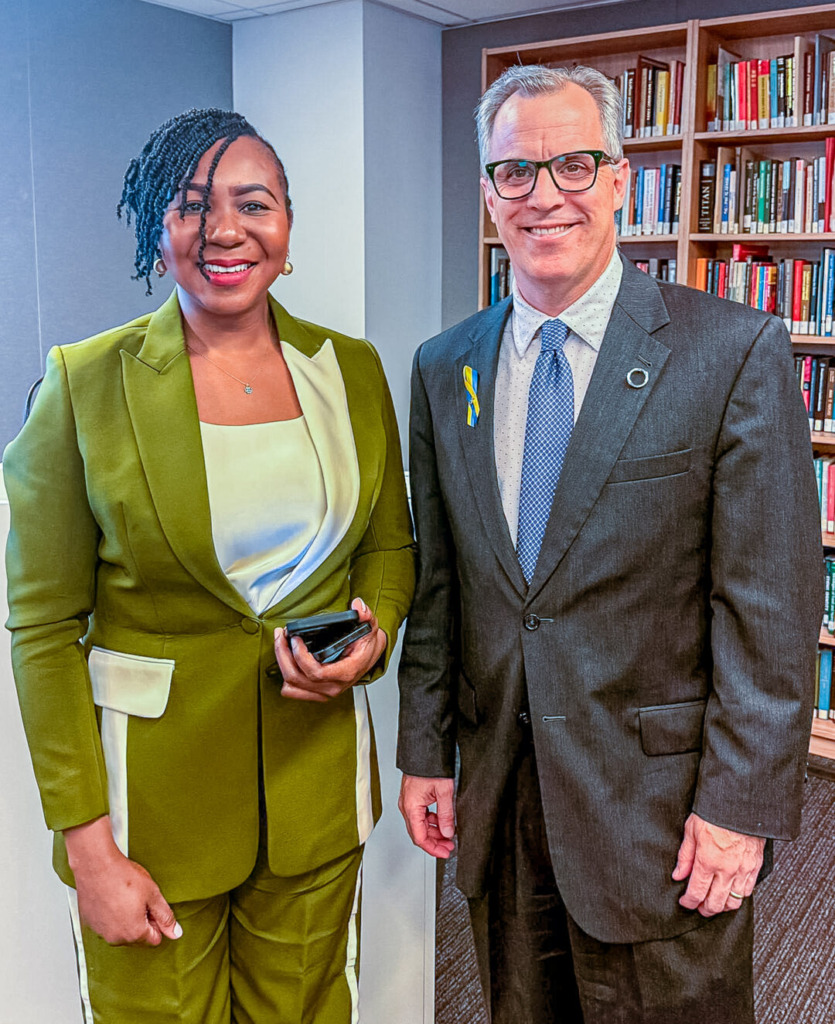
From these conversations, five clear lessons emerged:
1. “Africa does not wait.” Innovation is already here.
One of the most resonant moments came from Hon. Chernor Bah, Sierra Leone’s Minister of Information and Civic Education, who opened the session with a truth that set the tone: “Africa does not wait.” He wasn’t speaking metaphorically. Across the continent, communities are deploying solar-powered clinics, building local data platforms, and designing digital health tools that respond to real needs with or without external funding. This isn’t a plea for help. It’s proof that African innovation is operational, not aspirational.
2. Technology must solve real problems, not just look impressive.
Michael Holscher, President of PSI, cut through the tech hype with a grounded reminder: “Technology only works if it solves real problems for real people.” An app, a drone delivery system, or a new financing model only matters if it fits into the daily lives of women, youth, and underserved communities. Otherwise, it’s just noise. As our partners at Reach Digital Health emphasized during UNGA, we must build services people love, not just systems they tolerate.
3. Scaling requires partnership and redefined financing
True scale doesn’t come from isolated pilots or donor-driven agendas. It emerges when governments, civil society, the private sector, and communities co-own solutions – and when funding flows in ways that respect African leadership, not dictate it.
Co-President of the Population Council, James Sailer, made a compelling case, saying, “No one is doing this alone. When financing, trust, and accountability align, ideas stop being ‘cool pilots’ and start becoming national systems.” The collaboration between eHealth Africa and other key stakeholders is not a coincidence, nor is it mere convenience, but an intentional alignment.
4. Data is Africa’s sovereign resource.
Ota Akigbe, Director of Programs at eHealth Africa, also highlighted the critical role of inclusion and local agency: “When community voices are included from the start, solutions take root – and they last a lot longer.” This begins with data. In practice, this means co-designing tools like geospatial maps or vaccine delivery systems with communities, not just for them, so the data reflects real needs, builds trust, and earns government buy-in.
When African institutions generate, own, and act on their own data, they stop borrowing metrics from abroad and start writing their own progress reports. That’s how you shift from dependency to self-determination.
5. Sovereignty isn’t a buzzword. It’s the foundation of resilience.
Manasseh Gihana Wandera, Executive Director of Society for Family Health Rwanda, put it plainly: “Sovereignty is the backbone of resilient health systems.” When African nations design, fund, and scale their own solutions, no external actor can pull the plug. Aid may come and go, but locally rooted systems endure.
These are not stories of charity. They are stories of resilience and ownership. That’s the real takeaway from UNGA80: Africa’s future isn’t being handed down from somewhere else. It’s being built – brick by brick, byte by byte – by Africans themselves. This is because the future isn’t waiting – and neither is Africa.
